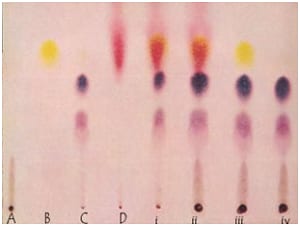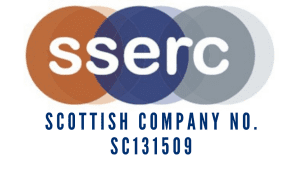 Chromatography is a set of related laboratory techniques for the separation of mixtures of soluble substances.
Chromatography is a set of related laboratory techniques for the separation of mixtures of soluble substances.
Details can be found here.
All forms of chromatography work by exploiting different interactions between the substances to be separated and the two components of the chromatography setup.
The stationary phase – this does not move and the liquids pass through it. (In ordinary paper chromatography, the paper is the stationary phase.)
The mobile phasee – this is the fluid that moves through the stationary phase (like the water through filter paper)
The different components of the mixture travel at different speeds, because they interact differently with the stationary phase, causing them to separate.
The types of chromatography that are commonly encountered in schools are:
• paper chromatography
• thin-layer chromatography
• column chromatography
• flash chromatography



